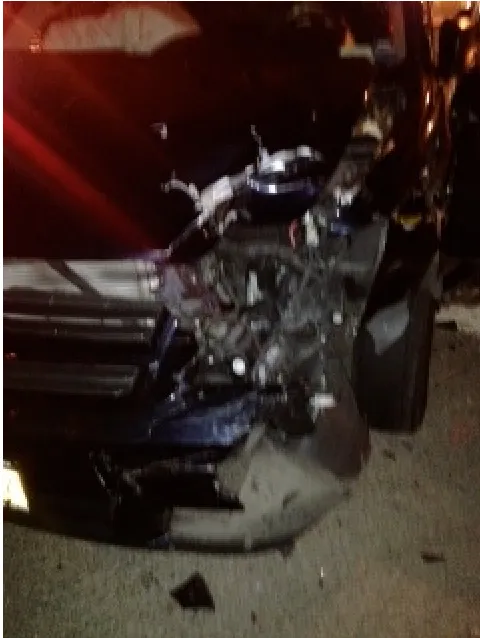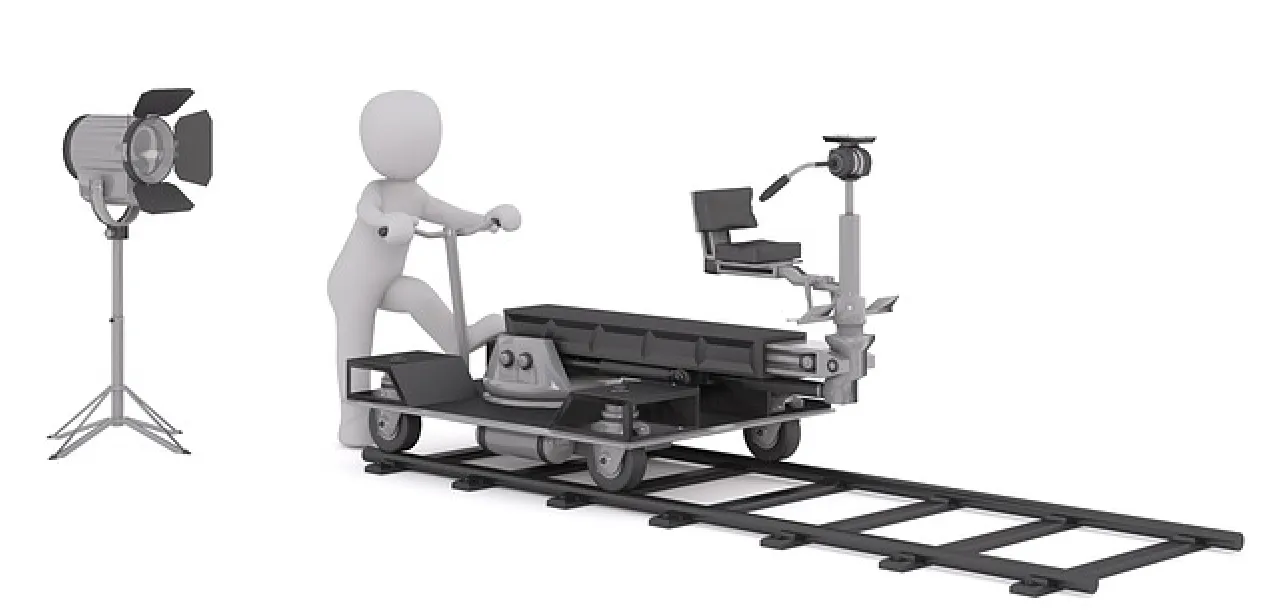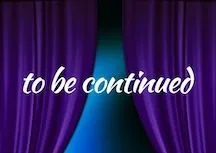
A few years ago I was involved in a motor vehicle accident while at work with four other crew members.
We were maybe two blocks from the studio and couldn't have been more excited to have been going home when we were. We were working on a big beauty spot with a movie star spokesman and had been putting in 17 hour days minimum for over a week. That day we were getting out at hour 15 and it was (almost) still light out - that counted in our books! That might not sound like reason enough to be excited, but any one who works in production will agree that it was worth celebrating.
We had just stopped at a stop sign in Brooklyn and were half way through the intersection when we were suddenly t-boned by an SUV. Our car was completely totaled and we had to call 911. Three of the four of us had to be taken by ambulance to the hospital and the driver of the other car was rushed to the ER with severer head trauma. Thankfully, none of us had lasting life threatening injuries though we were banged up pretty good. Later the driver of the other vehicle sued us and tried to say that it was our fault. For two years we were embroiled in a pretty ridiculous legal battle that eventually went to court. While I was on the stand and being interviewed by the prosecution - who by the way was a Nick Nolte looking attorney with a super bad attitude - I was asked to describe the day to the best of my ability. The attorney asked me if I thought we were overtired from having worked 15 hours that day. I jokingly replied that any day a production team has less than a 15 hour schedule its considered a short day and means we were going to have some free time to do the things we didn’t normally get to do. He asked me what I had planned on doing and I told him sit in my underwear on my couch without having to talk or listen to anyone.
 )
)I'm telling this story because I find that it helps to give some background into the world of production. (Side note, the case was actually thrown out as it was determined that the driver of the other vehicle was not only not paying attention, he was speeding and driving without his lights on.) With the many perks and bonuses that we are given in this field, there are also some pretty big negatives. An average of 15 hours on any given day is certainly one of them.
As a production manager and line producer, I'm often asked to build budgets around a 12 hour work day. While to some of you that is shocking enough, I must point out that when a job is billed as a 12 hour day you can be sure that at least part of the crew will be working for closer to 15 hours if not more. And those of us that are in charge of the crew have to begin work even before that as we need to be available and working before the first crew member arrives and well after the last crew member leaves. The days can be long and tiring and more often then not those of us that have those ridiculous hours are not compensated with any form of overtime.
I recently came across an interesting article by Gavin Polone called The Punishing Hours of a TV Crew that discussed the plight of the average TV Crew member and it got me thinking. He argues strongly for the twelve to twelve rule (12 hours on, 12 hours off) and I agree that it would be great to have a standardized practice for the television/film community. (It should be noted here that even some union rules don't have this requirement and are able to avoid it by being paid small penalties.) He discusses the case that all production people know of a crew member who was killed on his way home after a long day and even goes as far as to point out studies that show the level of people's productiveness after 12 hours. He has interviews he's done with a few different department heads discussing how the hours effect them both personally and professionally and talks about how actors too have grueling schedules but have days that they are not shooting so they have the ability to rest whereas crew members get no such breaks.

I am in no way arguing that money and free rides compensates properly for the hours that these crew members work. Their jobs are tough and tedious and most of the time very unglamorous despite popular belief. But they are in many cases coddled compared to those of the production team, most specifically the production assistant, and all of those that comprise it. Not only are they all most likely getting paid the least amount of money, they are generally unable to take proper meal breaks, they start their days off before call with answering phone calls and texts about information that was clearly given the evening before and their day ends well after the last crew member has gotten home.
There are of course exceptions to every rule and I am certainly not trying to take away from the hard work that the other departments are doing. A 14 hour day is a long day regardless of how much you get paid and absolutely effects all aspects of simple tasks like driving home or eating properly. My argument is for the fact that a scheduled 12 hour day is not really a 12 hour day and therefor not the solution to the problem.
A 12 hour day for someone in production is really 15 hours and rarely are their turn around hours taken into consideration. It is my belief that a crew member's rate (and by default schedule) should be based off of a 10 hour day. Not only for the fact that most state laws require OT on anything over a 40 hour work week (so really an 8 hour day) but in order to protect all of those crew members that are often considered below the below the line members. A 10 hour scheduled day for a grip or electric will still easily be a 12 hour day for a production assistant if not more.

I argue not only for the production team, as obviously I am somewhat biased in that regard, but also for just the plain decency of all working crew members. No matter how much you like your job, no matter how much fun you are having making the art and having a story come to life, the life of a crew member is physically and emotionally draining! Most of us don't drift off to sleep at the end of the work day, we pass out from shear exhaustion. We are constantly asked to hit that wall that everyone hits around 3:30pm and then expected to have another full day after it. Polone discusses that the schedules are typically set by studios who are basing them off of the budgets they've set for the project. You’d think that studios would want to avoid overtime, but when it’s all calculated out, it’s more expensive to add an extra day to the shoot than it is to add a couple thousand dollars into overtime expenses.
In the article Polone mentions that it is normally not the overworked and underpaid crew member that complains of these conditions, but those people that are much higher on the pay scale. I cannot even begin to tell you how many times an agency producer or client complains to me about how early they must arrive on set or how long of a day they had sitting behind the monitors, while being catered to of course, though those stories are for another article… Many crew members never mention the hours they are putting in or how tired they are after shooting multiple days in a row.

Crew members constantly discuss with me how they are supposed to make sure they are properly compensated and taken care of when the bottom line for them is they just want to work. They feel that they are consistently being under cut with their rates and are now being offered the lower rates at the higher hourly schedule. I’m in a unique position as someone who is not only directly effected by this issue, but as a person that helps to set budgets and schedules. On the one hand, I personally see how budgets are figured out and how in order to get enough money to make the shoot happen we have to look at any way to save money. And when it comes to having enough crew members versus giving them a lower rate, I’m of the opinion that giving enough people to actually do the work is more important than two hours of over time. But on the other hand, I find it disheartening to actually figure out what my hourly rate is… (Another thing to take into account is that while there are crews in most cities, the majority of us live in places like Los Angeles or New York where the price of living is even higher than average.)
To me, there is no easy solution. Well I take that back, there actually is. We should all be compensated fairly for the work that we do and treated like humans instead of cogs in a machine. Ta-dah! Problem solved. But since I see that happening on the off chance of no way, I’m somewhat stymied as to what the next move should be. I’ve spoken to multiple crew members about refusing to work for anything less than a 10 hour rate and while some of us are able to make that demand, most of us aren’t. I’ve talked to others about the benefit of joining a union – though as I mentioned the unions don’t solve all of the problems either and if I’m honest can cause their own set of problems. No one person seems to have all of the answers.
So I’ve come up with my own solution or at least a short term plan. If all of us in the industry, crews, actors, producers and even family members of the before mentioned people bring light to this, perhaps we can start the discussion with those above the line people that Polone mentions in his article. If more people like Gavin Polone spoke with the crews and then spoke out about what they had learned, maybe we could get studios and agencies and unions to come to some kind of reconciliation. It might not be the newest plan in the books, but at least there would be more discussions. And more discussions lead to more outrage and better people than me coming up with ideas.
I feel a bit as if I should end my article with the chant to take up pickets and a draw to arms! I think I sound a bit like someone trying to force unionization or someone who wants to shut down the industry completely. None of which is true. I’m simply looking for there to be more acknowledgement for the hard work put in by everyone that works on a set and looking for away to properly compensate us all for the work we are doing. It shouldn’t be that hard, right?!
